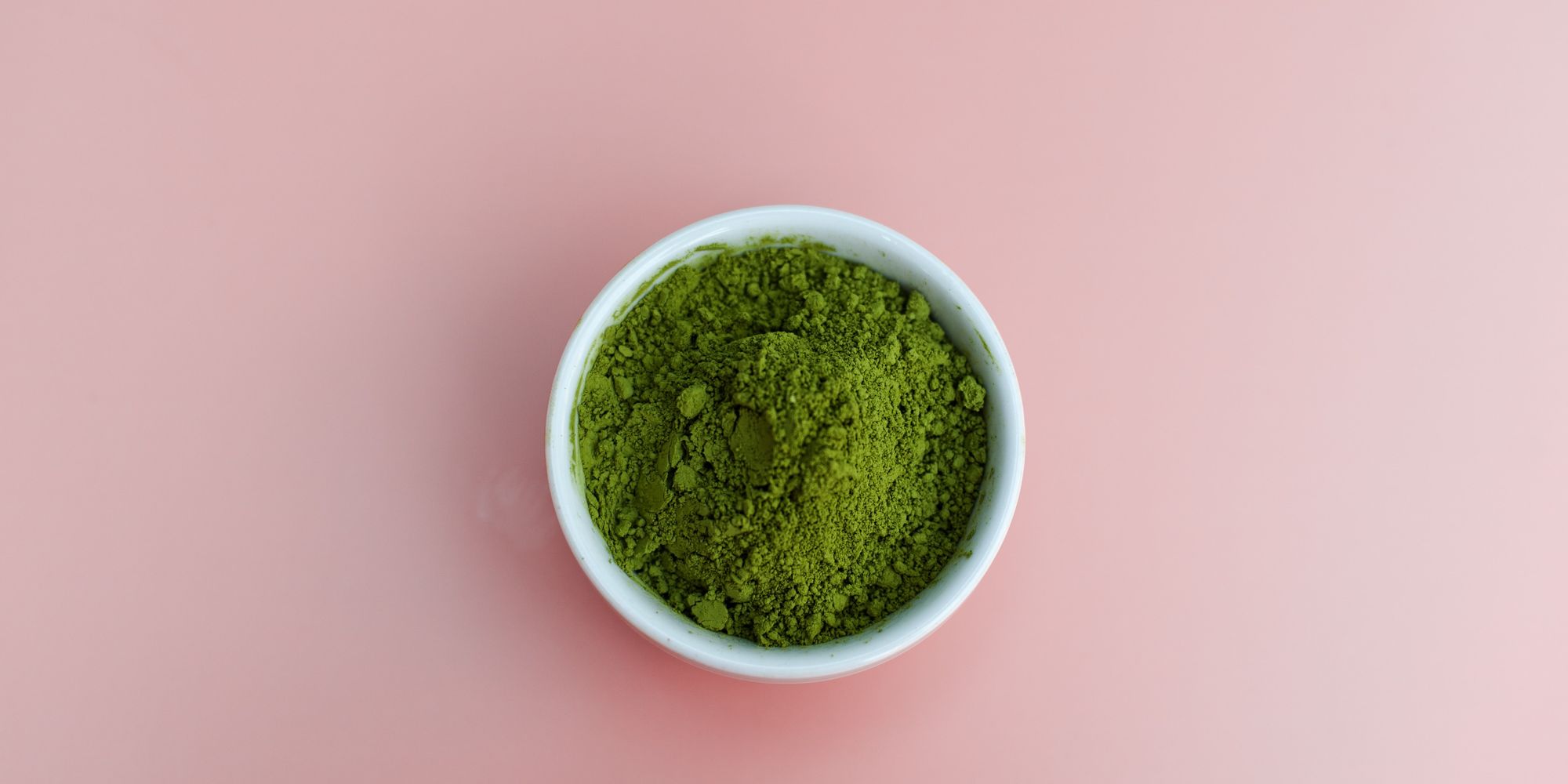What Are the Benefits of Matcha?
Today, we are here to talk about matcha as an energy source, including its caffeine content and the many benefits it may provide.
Matcha beverages (like matcha tea or a matcha latte) are becoming increasingly popular as an alternative to coffee-based drinks for a pick-me-up — and for good reason. Matcha can have many benefits that support your overall wellness.
But what is matcha, and does it contain caffeine? Today, we are here to talk about matcha as an energy source, including its caffeine content and the many benefits it may provide.
What Is Caffeine?
Caffeine is a chemical compound naturally found in coffee, tea, and even chocolate. Many energy drinks and sugary beverages also incorporate caffeine.
Caffeine is a stimulant, which means that once you consume it, it travels through your bloodstream and into your brain to stimulate your central nervous system. Caffeine triggers your brain to release certain chemicals, such as adrenaline and cortisol, that can support alertness.
Caffeine is also an adenosine antagonist, meaning it binds to adenosine receptors before adenosine — a chemical our brain produces to make us feel tired — attaches to them. This blocks adenosine activity and can postpone feelings of tiredness.
Consuming caffeine in moderation may bring certain health benefits, such as kickstarting metabolism and helping you feel more energized to take on the day.
The FDA considers any caffeine intake of 400 mg or less daily to be within a safe allowance for adults to incorporate as part of their healthy diet. If you drink too much caffeine (over 400 milligrams daily) or are highly sensitive to the effects of caffeine, it may elicit side effects such as jitters or a reduction in sleep quality.
What Is Matcha?
Matcha is a type of fine powdered green tea that comes from the Camellia sinensis tea plant. Camellia sinensis is native to Japan and is the same source for black, white, and other types of green tea.
The tea plant's leaves naturally contain a phenolic compound called catechins. As an antioxidant, catechins can bring health benefits that support your overall wellness upon consumption.
Matcha, in particular, is rich in catechins compared to other types of tea because the matcha green tea plant grows in the shade. Full shade allows the plant’s green tea leaves to yield more amino acids and antioxidant compounds than its non-matcha tea plant counterparts.
Does Matcha Contain Caffeine?
As a type of green tea, matcha does contain caffeine. In fact, because manufacturers grind matcha tea leaves into powder, matcha typically has a higher caffeine content than other green teas in loose-leaf form.
Just how much caffeine does matcha have, and how does this compare to coffee? Let's take a more in-depth look at matcha’s caffeine stats.
How Much Caffeine Does Matcha Have?
There is no universal answer to matcha's caffeine content because the amount of matcha caffeine varies depending on where its tea leaves come from and how strong the tea is.
Matcha can generally contain anywhere from 18.9 to 44.4 milligrams of caffeine per gram of tea. This means there can be anywhere from 75.6 to 177.6 milligrams of caffeine per cup of matcha beverage.
Whether you make matcha green tea with hot water or milk will not affect the amount of caffeine in your drink, but how much matcha powder you use definitely will.
How Does the Caffeine in Matcha Compare to Other Sources of Caffeine?
Matcha usually has a higher caffeine content than coffee and other drinks. Coffee beans usually have anywhere from 10 to 12 milligrams of caffeine per gram of coffee beans.
This means that while a cup of matcha usually has about 76 to 178 milligrams of caffeine, a cup of coffee has about 80 to 100 milligrams of caffeine.
In addition to a typical cup of coffee, matcha often has a higher caffeine content than many other drinks.
Here are some other common caffeine sources, with the typical amount of caffeine levels in each, for comparison:
- A latte usually has between 100 to 130 milligrams of caffeine per cup
- A single espresso shot usually has between 60 to 85 mg of caffeine
- A cup of black tea has between 14 to 35 mg of caffeine
- Regular green tea has between 11 to 25 mg of caffeine per cup
- Chocolate also has less caffeine than matcha — milk chocolate typically has 9 milligrams of caffeine per 1.55 ounces of chocolate (standard candy bar size)
What Are the Benefits of Matcha?
Camellia sinensis contains L-theanine, an amino acid that helps give matcha tea its unique non-bitter taste. Due to the shade-growing of plants intended for matcha production, L-theanine does not break down from UV exposure to the sun’s rays. This sustainable and relatively high L-theanine content in matcha tea, in combination with caffeine, may help support feelings of energy and well-being.
The polyphenols, antioxidants, chlorophyll, and L-theanine, in combination with the caffeine content, allow matcha green tea to offer unique wellness benefits. As such, drinking matcha can promote overall well-being and help you feel energized throughout the day.
The Bottom Line
Matcha green tea is a finely powdered Japanese tea that comes from the tea plant Camellia sinensis. Matcha can offer a great natural energy boost as a green tea powder, as it has a higher caffeine content than many other caffeinated drinks, such as coffee in the forms of an espresso or a latte, and even regular green tea and black tea.
Additionally, matcha contains polyphenols, antioxidants, chlorophyll, and L-theanine. This unique combination allows matcha green tea to offer unique wellness benefits that can promote overall well-being and help you to feel your best throughout the day.
Sources:
Caffeine | Annual Review of Nutrition
Spilling the Beans: How Much Caffeine is Too Much? | FDA.
Health Benefits and Chemical Composition of Matcha Green Tea: A Review | PMC
Determination of catechins in matcha green tea by micellar electrokinetic chromatography | ScienceDirect


